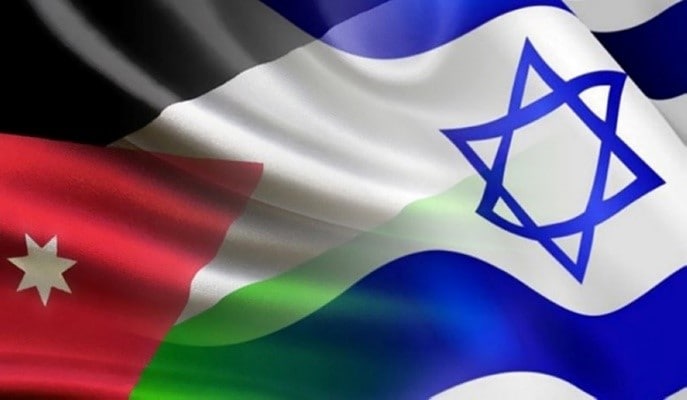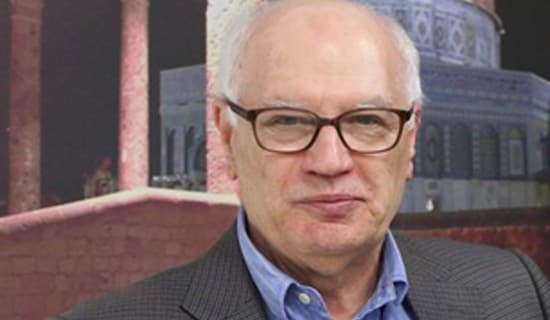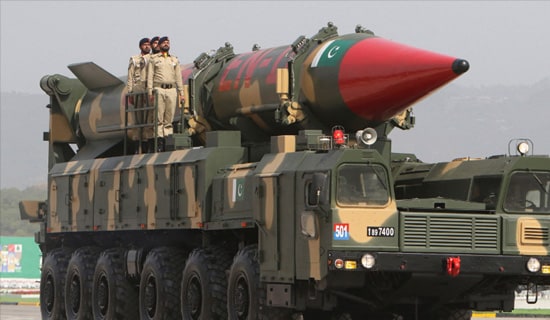There have recently been increasing calls in Jordan to revoke the peace agreement with Israel and completely sever the relations with it, and some even accused the Jordanian regime of treason for maintaining this agreement. These voices were heard at demonstrations and protests against the Gaza war that have been held in Jordan in the last few weeks, especially by the Jordanian Muslim Brotherhood movement.[1] They were also heard after Jordan helped thwart Iran's April 14 missile- and drone-attack on Israel by intercepting some of these threats, which passed through its airspace.[2]

Following the Iranian attack, Jordanian Foreign Minister Ayman Al-Safadi addressed the calls to revoke the peace treaty with Israel, saying that the treaty is a source of strength for Jordan, especially because it enables the kingdom to help the Palestinians and advance their cause and to protect Jerusalem and its holy places. Revoking this agreement, he emphasized, will not only fail to benefit the Palestinians, but will hurt them by preventing Jordan from supporting them. Other Jordanian officials likewise stressed that the peace treaty with Israel is "a strategic choice" of Jordan's that benefits the Palestinians. They also noted that Jordan signed this agreement with Israel only after the Palestinians themselves signed the Oslo Accords with it in 1993.
Similar arguments were made by Jordanian journalist Alaa Al-Qarala in his March 31 column in the state daily Al-Rai, in which he came out against the "populist" calls to cancel the peace treaty with Israel. He stated that the treaty benefits the Palestinians much more than it benefits the Jordanians, and that, were it not for this treaty, the Palestinian cause would have perished decades ago.
The following are translated excerpts from the statements by the Jordanian officials and from Al-Qarala's column.
Senior Jordanian Officials: Revoking The Peace Treaty With Israel Would Harm The Palestinians And Their Cause
In statements to Jordan's official news channel Al-Mamlaka on April 14, the day after Iran's attack on Israel, which Jordan helped to thwart, Foreign Minister Ayman Al-Safadi referred to the calls to revoke Jordan's peace treaty with Israel, saying: "The treaty actualized all our rights and served our interests. Revoking it would not be in Jordan's or the Palestinians' interest. If we thought even for a moment that revoking it would be in the interest of Jordan or of the Palestinians, we would have done so without hesitation... In actual fact, this would harm both Jordan and Palestine and greatly limit our ability to continue fulfilling our main and primary role in providing aid to the Palestinian people… The peace treaty is a source of strength for us and allows us to continue our role of aiding the Palestinian people while protecting our interests… The kingdom signed the peace treaty after the Palestinians signed the Oslo Accords with Israel and the entire Arab world was [involved] in negotiations towards a comprehensive and lasting peace."
Referring to the calls in Jordan to cancel the peace treaty with Israel, Al-Safadi stated that "we respect Jordanian public opinion," and added: "Back in 1994, when [the treaty] was signed, it protected our interests. We regained all our occupied lands, and the treaty enshrined Jordan's special role in administrating the places holy to Islam and to Christianity in Jerusalem. Were it not for this role, there would have been a vacuum, and Israel would have exploited this to impose its own sovereignty and administration on the holy places rather than granting them to the Palestinians." Al-Safadi contended that Israeli extremists, among them ministers in the Israeli government, "want to cancel the peace treaty, which would take us back to square one and the issue of the borders and the conflict, and cause us to lose our ability to fulfill our role…"[3]
SUPPORT OUR WORK

Other senior Jordanian officials also expressed Jordan's commitment to the peace agreement with Israel in light of the calls in the kingdom to revoke it. In a March 29, 2024 interview with Sky News Arabia, Jordan's government spokesman Muhannad Mubaidin accused Hamas' leaders of populism and of inciting the Jordanian people against their leadership. These figures, he said, are trying "to force Jordan to choose different options," but "peace is our strategic choice and the peace treaty [with Israel] is what allows us to fulfill our role of easing the pressures on the people in the West Bank."[4]
In an April 3, 2024 interview with the Al-Mashhad television channel and digital platform, Jordanian Senate President Faisal Al-Fayez said that, after the signing of the Camp David Accords between Egypt and Israel, Jordan's monarch at the time, King Hussein, was pressured to sign a similar agreement with Israel, but "he did not succumb to this pressure. Only after the Palestinian Authority signed the [Oslo] Accords with Israel did the king sign the Jordanian-Israeli [peace] treaty. So don't brandish populist slogans based on our position…"[5]
Article In State Daily Al-Rai: Were It Not For The Peace Treaty, The Palestinian Cause Would Have Perished
Journalist Alaa Al-Qarala expressed similar opinions in his March 31, 2024 column in the state daily Al-Rai, headlined "Oh Disseminators Of Populist Slogans, These [Would Be] the Consequences of Revoking the Peace Treaty." He argued that this treaty benefits the Palestinians more than it does Jordan, and that if Jordan was concerned only with its own interests, it would have canceled it long ago.
He wrote, "Let us begin by acknowledging that Jordan signed the peace treaty with the occupying entity [i.e., Israel] only after the Palestinians themselves, including all their factions, did so [by signing the 1993 Oslo Accords]. And let us also acknowledge that the last people who derive any benefit from this treaty are the Jordanians themselves. The most important point we must agree on lies in the question: What did the Palestinians and their cause derive from the agreement signed with the entity, and what would happen if Jordan decided to revoke it?...
"Ladies and gentlemen, it is this peace treaty that has enabled us over the years to extend our patronage over the holy places in the West Bank, to protect them, look after them, renovate them, maintain them and ensure that the believers have access to them. Furthermore, the treaty has allowed every Palestinian to travel to the [rest of the] world through our territory, and allowed us to help the Palestinians establish the kernel of their longed-for state – a state on the 1967 borders with East Jerusalem as its capital, for whose establishment we have been fighting since [the signing of] the treaty.
"Were it not for this treaty – which now prompts you to accuse us of treason and spread populist slogans against us – the [Israeli] settlers would have done as they pleased in the West Bank and we wouldn't have been able to send in even a grain of flour or a bed for medical treatment, nor parachute aid to the people of Gaza, who want action and not rhetoric, incitement, divisiveness, and demonstrations that are of no help at all. Moreover, were it not for the treaty between us and [Israel] – and what I say is no secret – the Palestinian cause would have perished a quarter of a century ago, and all [the Palestinians] would have emigrated from [Palestine].
"If Jordan wanted to behave selfishly with regard to the Palestinian cause, it would have cancelled the treaty today, not tomorrow. But wisdom and common sense compel us to maintain it while insisting on the establishment of a Palestinian state whose capital is Jerusalem. To this end we work together with all the partners in the world to pressure this entity [Israel] to end the armed struggle throughout Palestine, not only in Gaza.
"Furthermore, Jordan did not hesitate for a moment to freeze all the agreements [that have been signed], suspend all those that were slated to be signed and make all of them conditional on ending the aggression against Gaza.[6] Indeed, Jordan expelled the Israeli ambassador, closed the [Israeli] embassy [in Amman] and [campaigned] throughout the world on behalf of the Palestinians in a bid to end the [Israeli] aggression, expose the misleading Israeli narrative and break the siege [on Gaza] in the air and on land, and it is sending [the Gazans] aid that is beyond its modest means and resources.
"In short, cancelling the [Jordan-Israel peace] treaty would not harm us [the Jordanians]. The last to lose would be Jordan and the Jordanians, while the first to lose out would be the Palestinians themselves, the Muslims and the Arabs. This is because revoking the treaty would lead to the Judaization and loss of Jerusalem, along with all the holy places within it, and strengthen the rule of the occupation over the West Bank. Most significantly, revoking the treaty would mean condemning the Palestinians to live under siege forever, and who among you wants that? This is a question for all, except for the populists who receive their instructions from abroad."[7]
[1] See MEMRI Reports: Special Dispatch No. 11251 - Jordanian Regime Furious With Hamas, Muslim Brotherhood: They Are Acting To Foment Chaos In Kingdom In Service Of Iran – April 4, 2024; Special Dispatch No. 11226 - Calls For Terrorist Operations Against Israel From Jordanian Territory – Hamas And Muslim Brotherhood Officials, Clerics Close To Qatar: Jordanians Must Buy Arms And Undergo Military Training; Fighting Jews Is 'Islamic Duty' – March 25, 2024.
[2] See MEMRI Special Dispatch No. 11277 - Jordan Explains Its Participation In Thwarting Iran's Attack On Israel: We Defended Our Borders And People, Oppose Any Iranian Attempt To Violate Our Sovereignty – April 15, 2024.
[3] Almamlakatv.com, April 14, 2024.
[4] Skynewsarabia.com, March 29, 2024.
[5] Almashhad.com, April 3, 2024.
[6] The reference is to Jordan's November 2023 decision to freeze the water-for-energy deal with Israel, set out in a Letter of Intent signed on the periphery of the Expo in Dubai in November 2021. See MEMRI Inquiry & Analysis Series No. 1615, The Water-for-Energy Deal Between Jordan And Israel: A Jordanian Interest Amid Popular Opposition, December 28, 2021. On November 22, 2023, the online daily Rai Al-Youm reported that, according to official Jordanian sources, Jordan had informed the UAE of its decision to delay the final signing of the agreement, which was to be financed by the UAE, as part of pressuring Israel in the context of the Gaza war. The daily also reported that, in an interview with Al-Jazeera TV, Jordan's Foreign Minister Ayman Al-Safadi stated that the kingdom would not sign the agreement. Raialyoum.com, November 22, 2023.
[7] Al-Rai (Jordan), March 3, 2024.




